How to Prioritize Home Remodeling Projects When You Can’t Do Them All at Once
October 30th, 2025
4 min read
By Sara Majeske
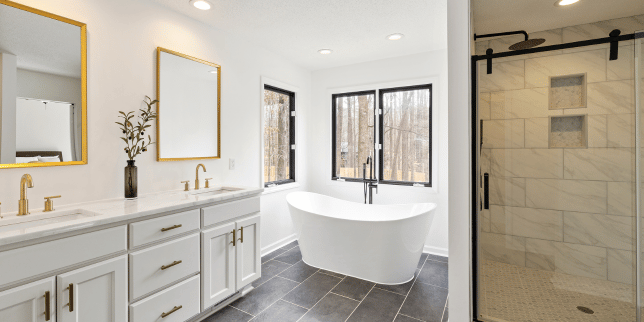
Every homeowner has a list of improvements they’d love to tackle: some urgent, others more of a “someday” dream. The challenge comes when you can’t do them all at once. How do you decide where to start without feeling like you’re making the wrong choice?
At Custom Built, we understand that remodeling is about how your home supports your family’s safety, comfort, and daily life. With 20 years of experience guiding Michigan families through these decisions, we help homeowners separate what needs to happen now from what can wait, all while keeping the bigger picture in mind.
In this guide, you’ll learn eight practical strategies for prioritizing your remodeling projects, starting with safety, balancing wants versus needs, and creating a plan that works for both today and tomorrow:
- Start with a Holistic Plan
- Resolve Safety and Structural Repairs
- Address Energy Efficiency
- Focus on Daily Functionality and Family Needs
- Evaluate Return on Investment (ROI)
- Plan Projects Around Seasonal Timing
- Break Down Large Projects into Phases
- Balance Wants vs. Needs vs. Wishes
1. Start with a Holistic Plan

Before tackling individual projects, step back and view your home as a whole. A holistic plan helps you see how each remodel fits into your overall vision and allows you to prioritize based on impact and feasibility. By mapping out all the changes you want, big and small, you can break them into logical phases, spreading costs and minimizing disruption.
Here are a few tips to get started:
- List every project, including major renovations and smaller updates.
- Group by space or function. Phase projects by rooms or areas that fit together.
- Consider timing and budget. Start with urgent or cost-effective updates.
- Keep the vision in mind. Ensure each phase contributes to a cohesive home.
A phased approach ensures projects complement each other, like updating your kitchen layout before choosing flooring, so you make steady progress without feeling overwhelmed.
2. Resolve Safety and Structural Repairs

Before you think about finishes or design upgrades, the first priority should always be the bones of your home. Safety and structure come first. If your roof leaks, your foundation shifts, or your wiring is outdated, these issues can cause damage that makes future projects more expensive.
Here are more tips for safety and structural repairs:
- Tackle structural needs like roofing, foundation, or electrical updates first.
- Address water management and waterproofing to prevent bigger problems.
- Focus on functionality. Repairs that protect your family’s safety and your home’s long-term value.
Once these projects are handled, you can move forward with confidence knowing your investment is protected.
3. Address Energy Efficiency

Energy upgrades may not be as exciting as a kitchen remodel, but they often save you the most money over time. Poor insulation, old windows, or inefficient HVAC systems can make your home uncomfortable and drive up utility bills.
Let’s take a look at energy-efficient solutions you can pursue:
- Consider an energy audit or blower door test to find weak spots.
- Upgrade insulation, ventilation, and windows before finishing spaces like bathrooms or basements.
- Look for rebates or incentives to offset costs.
- Batch projects together. If you’re renovating a bathroom, upgrade insulation and ventilation at the same time.
These hidden upgrades make your home more efficient, more comfortable, and cheaper to run day after day.
4. Focus on Daily Functionality and Family Needs
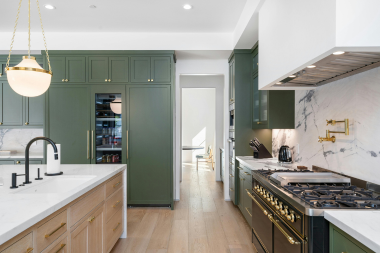
Once your home is safe and efficient, turn your attention to how your family actually uses the space. A remodel should improve your daily life.
Think about the spaces you use most often and how they could better serve your family:
- Kitchens and bathrooms are common priorities since they see the most use.
- Open layouts and improved storage help families move more freely through their home.
- If your kids are young, mudrooms and durable finishes may be more important than high-end selections.
Choose projects that make your home work harder for you today, not just projects that look good on paper.
5. Evaluate Return on Investment (ROI)
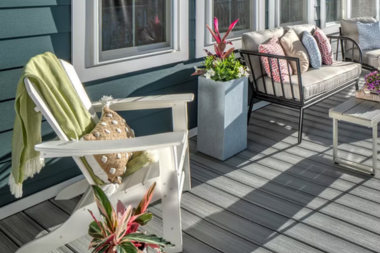
PC: Trex
Some projects deliver strong financial returns, while others are more about lifestyle. When prioritizing, it helps to balance both.
- High-ROI projects often include kitchens, bathrooms, and decks.
- Energy-efficient upgrades reduce bills and increase resale appeal.
- Luxury “wish list” projects add enjoyment but may not always add value.
Ask yourself: Does this project protect, improve, or enhance? Projects that hit all three are often the smartest choices.
6. Plan Projects Around Seasonal Timing
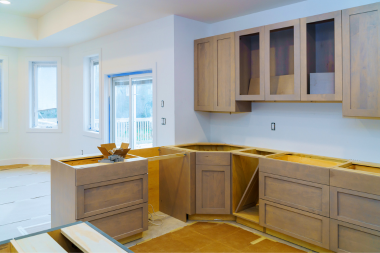
Timing matters. Some projects simply work better in certain seasons. Knowing when to tackle them keeps your remodel efficient.
- Exterior projects like roofing, siding, and decks are best for spring through early fall.
- Interior projects like kitchens, baths, and basements can be done year-round.
- Plan ahead. Contractors often book months in advance, especially in Michigan, where weather plays a role.
Scheduling wisely keeps your project on track and avoids unnecessary delays.
7. Break Down Large Projects into Phases
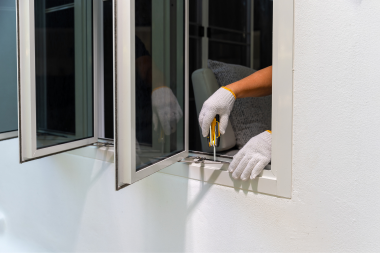
Not every remodel has to happen all at once. Breaking projects into phases can make them more manageable without losing sight of the big picture.
- Batch similar trades together (e.g., siding and windows, or plumbing and bathrooms).
- Combine projects where labor overlaps to save on cost and time.
- Use “endcaps and bookends”—clear start and stop points—to prevent projects from bleeding together endlessly.
Phasing your remodel allows you to prioritize what matters now while still working toward your long-term vision.
8. Balance Wants vs. Needs vs. Wishes
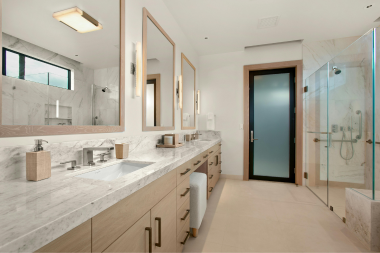
A simple way to organize your remodel is by sorting projects into three categories:
- Needs: Safety, structure, and functionality.
- Wants: Upgrades that improve value and comfort.
- Wishes: Luxury projects or selections that can wait.
Focus first on needs, work in some wants where possible, and keep wishes as part of a long-term plan. This approach gives you peace of mind that the essentials are covered while still leaving room for creativity and fun.
Next Steps to Remodeling Your Home
Remodeling doesn’t have to be all-or-nothing. Prioritizing projects lets you protect your home now while progressing toward your long-term vision.
You’ve learned to put safety and structure first, batch trades for efficiency, tackle energy and functionality upgrades next, and phase luxury wishes so your budget and timeline stay realistic.
At Custom Built, we help homeowners turn scattered to-do lists into clear, phased plans that balance safety, comfort, and value.
Ready to map your priorities? Contact our team to review your must-haves, batchable trades, and a phased plan that fits your timeline and budget.
Now that you know more about how to prioritize home remodeling projects, let’s take a look at whether a design-build firm like Custom Built is right for you, how we will approach your project, and other ways to vet your remodeling partner options:
- Top 4 Differences Between a Design-Build Firm and a General Contractor - A comparison between design-build firms and general contractors that highlights the pros and cons that each brings to the table.
- Dream, Design, and Build: Our Remodeling Process - This guide details how we at Custom Built will approach your remodeling project, including who you will work with and when to expect each crucial step of your renovation to occur.
- Top 8 Questions to Ask Before Hiring a Remodeling Contractor - A list of essential questions to ask your prospective remodeling contractor before hiring them for your project; additional questions are included in each section.
Topics:


























